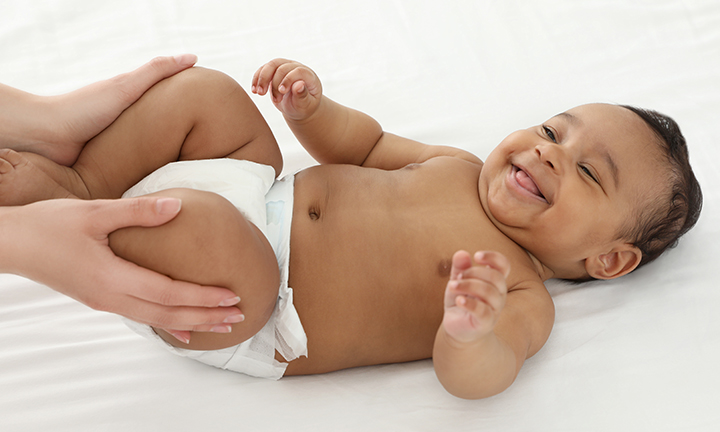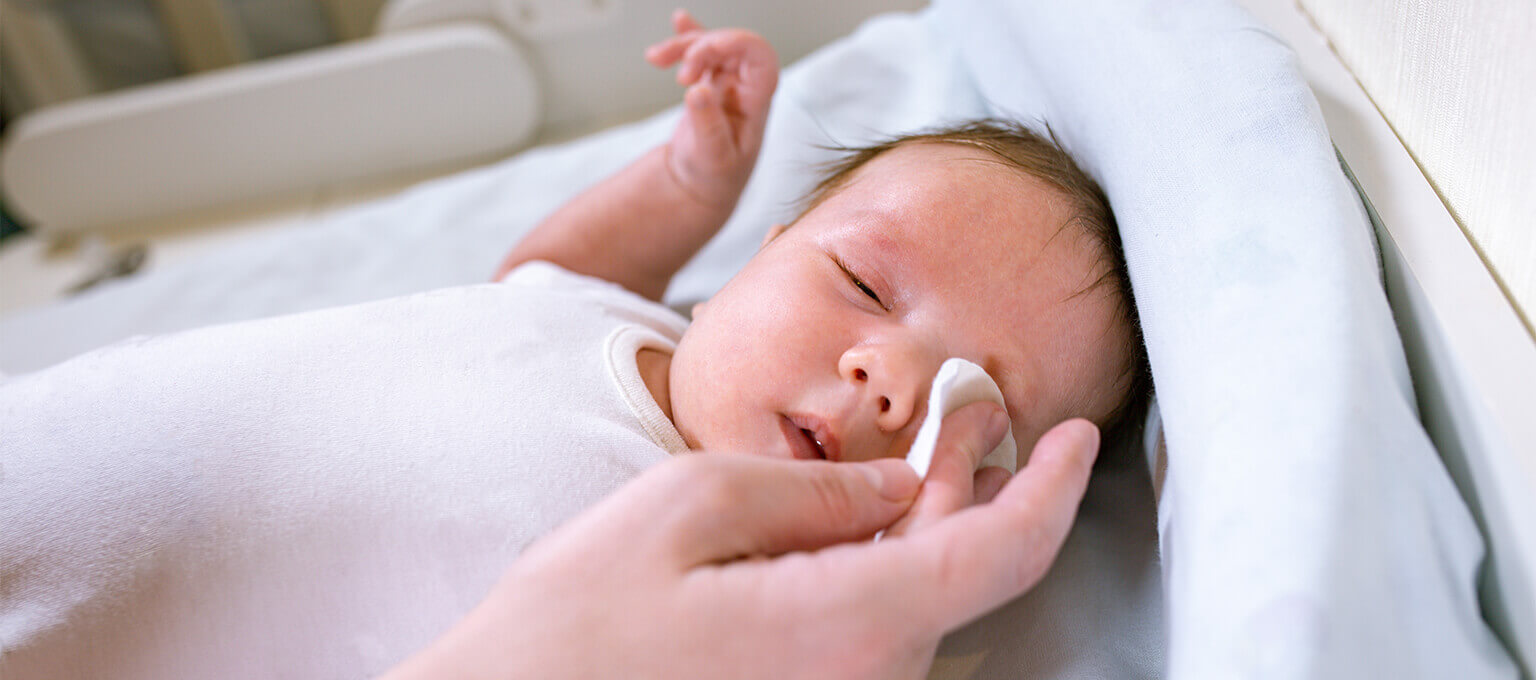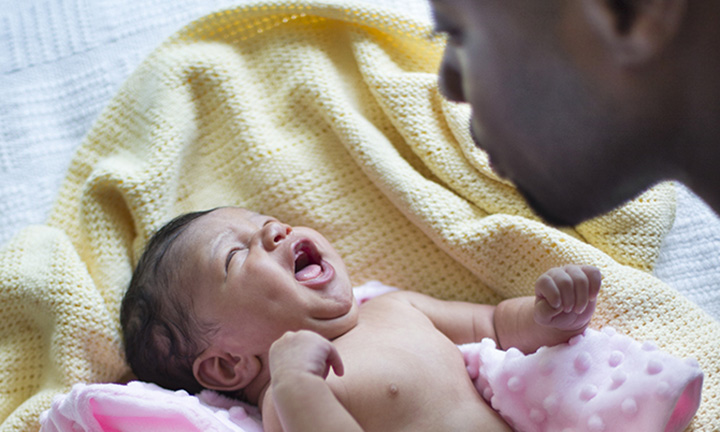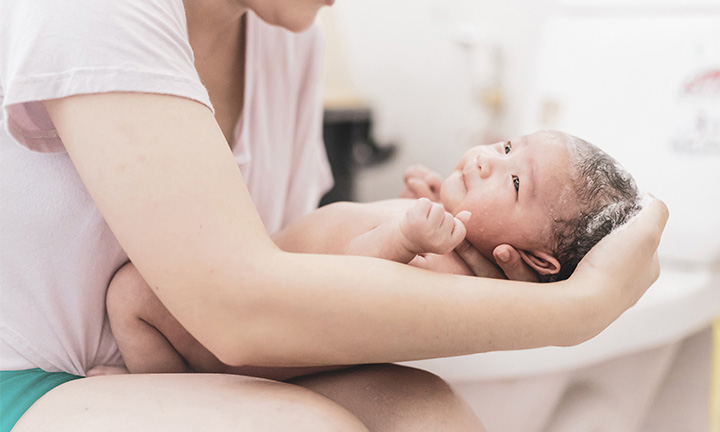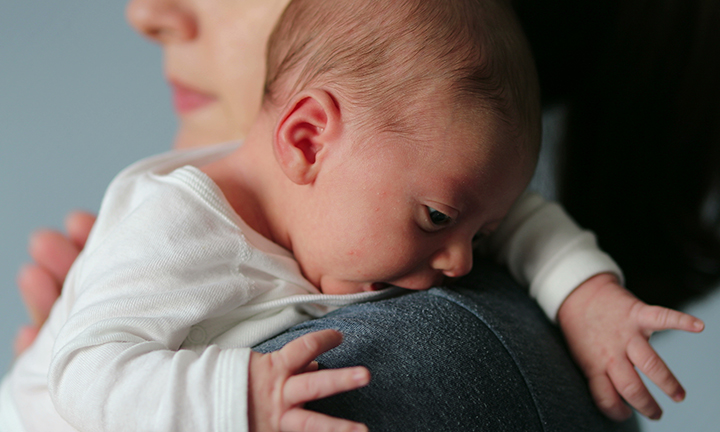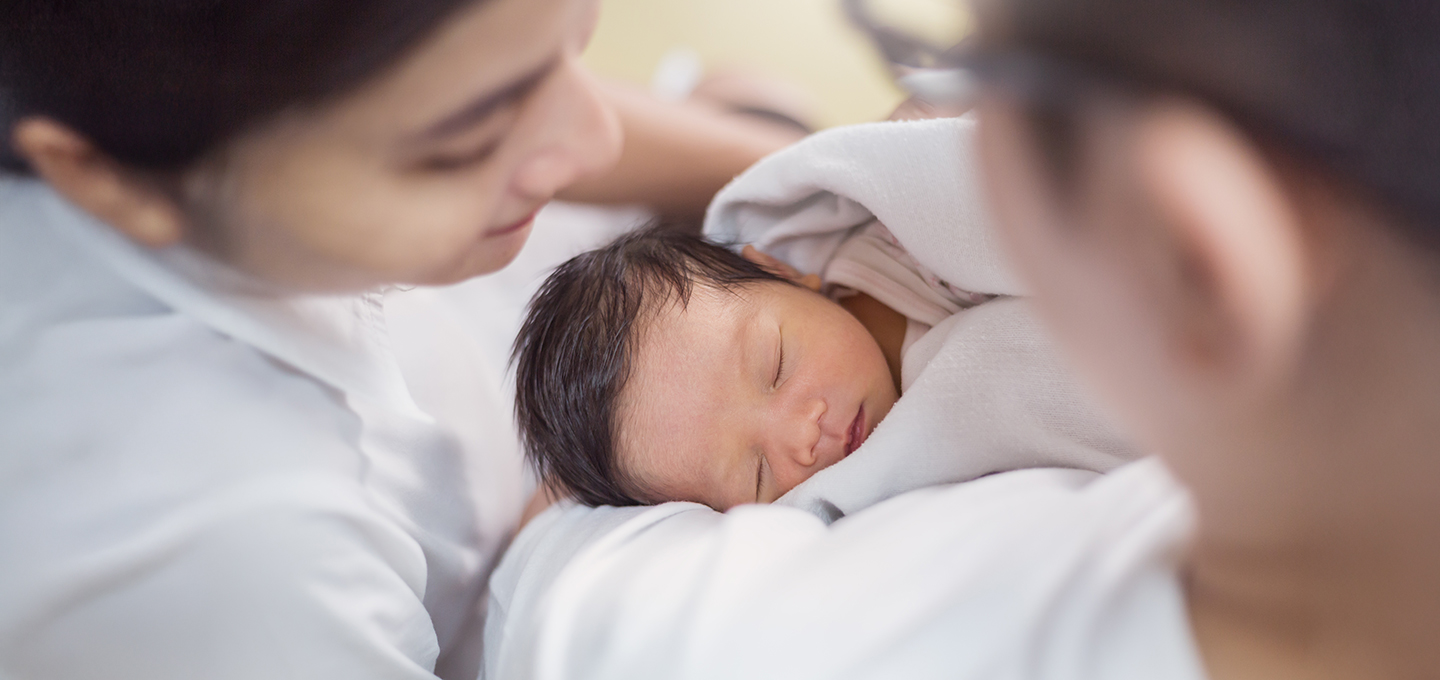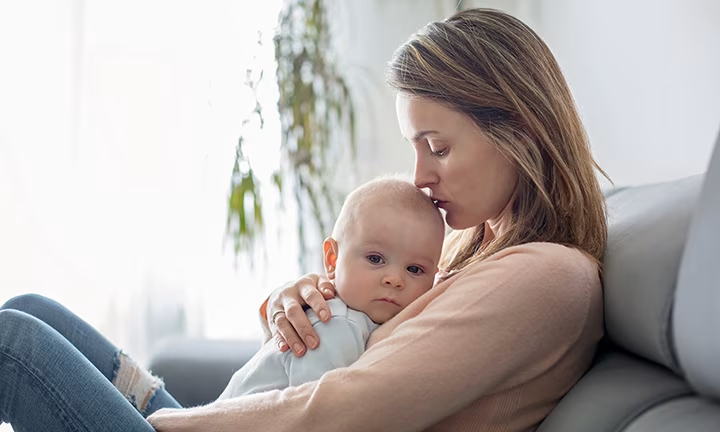
RSV and Bronchiolitis in Babies and Toddlers
Respiratory syncytial virus, or RSV for short, is a strange-sounding name for an illness you may not have heard of, but it’s more common than you may think. Usually RSV only causes cold-like symptoms, but sometimes it can lead to a lower respiratory tract infection known as bronchiolitis in babies or toddlers under the age of 2. Read on to learn more about RSV and bronchiolitis.
What Is RSV and How Do You Get it?
Respiratory syncytial virus is just one of many viruses that can cause a cough or cold in children and adults. In babies younger than 2 years old, RSV can sometimes lead to bronchiolitis or – in much rarer cases – pneumonia. Like many viruses, RSV can spread through saliva droplets when someone coughs or sneezes. It can live on surfaces like countertops or toys for several hours. This means your child could get infected by touching anything that has been contaminated and then touching his or her mouth, nose or eyes. The RSV infection can last from one week to several weeks depending on its severity.
What Are the Symptoms of RSV in Babies and Toddlers?
A mild case of RSV can cause cold-like symptoms such as:
If the RSV infection spreads to the lower respiratory tract, it can lead to bronchiolitis, an infection of the small airways of the lungs. It's not the same illness as bronchitis, which is where the larger airways of the lungs become infected and inflamed.
Bronchiolitis Symptoms
The symptoms of bronchiolitis include:
Rapid breathing
Wheezing
A rasping cough that doesn’t go away
Brief pauses in breathing
Vomiting after feeds.
How Common Is RSV and Bronchiolitis in Young Children?
Respiratory syncytial virus is an extremely common cause of lower respiratory tract infections in infants and young children. In fact, RSV is so common that nearly all kids have had it by the time they reach 2 years old. Luckily, in most cases, it only causes cold-like symptoms that improve on their own. For a smaller number of babies, the RSV infection can lead to bronchiolitis, which may need medical care.
How Contagious Is RSV?
Respiratory syncytial virus is highly contagious. Your child is most likely to catch it between November and March – the cold and flu season – although it’s possible to get it at any time of year. It’s also possible to catch it more than once. The RSV virus can spread quickly at playgroups and schools, so your baby can easily get it at playgroup or from an older sibling who brings the virus home from nursery or primary school. Keep in mind that your baby can spread an RSV infection through direct contact with anyone. No matter how difficult it is to resist, someone who kisses your baby’s cute little face, for example, could potentially pick up the virus.
Is It Possible to Prevent RSV?
Although you can’t completely protect your baby from infections like RSV, there are some simple steps you can take to reduce your little one’s risk of coming into contact with the RSV virus and getting infected:
Who Is Most Susceptible to RSV and Bronchiolitis?
Your infant may be at a higher risk of developing severe RSV or bronchiolitis if he or she
When Should You See a Doctor?
Mild cold symptoms that seem to improve over time will usually clear up by themselves, but see your child’s doctor straight away or call 111 if your baby is less than 12 weeks old or if you notice any of the following symptoms:
Symptoms of bronchiolitis, such as a rasping cough and wheezing
Loss of appetite (taking less than half the usual amount at the last two or three feeds)
Signs of dehydration (such as no wet nappy for 12 hours or more)
A fever of 38 degrees Celsius or more
Your baby seeming very tired or crotchety.
Call 999 if your child
has trouble breathing (you might notice the skin being sucked in under the ribs, your baby grunting to breathe or looking pale and sweating)
is breathing very fast
can’t be woken or has trouble staying awake if woken
stops and starts breathing intermittently
has bluish skin, lips or tongue and inside of the mouth.
How Is an RSV Infection or Bronchiolitis Diagnosed?
If you suspect your little one has RSV or another respiratory infection, the doctor may ask you to describe the symptoms. Your child’s doctor may then give him or her a physical examination and listen to his or her breathing with a stethoscope. If your baby is having trouble breathing or shows signs of dehydration your child’s doctor may recommend treatment or further tests in hospital. These tests could include:
How Is RSV Treated?
There is no medicine available to treat the RSV that causes the infection. Keep in mind that since it’s a virus, antibiotics would not be prescribed because they’re only effective against bacterial infections. However, there are some things you can do at home to ease mild symptoms and help make your child more comfortable:
Hospital Treatment for RSV with Bronchiolitis
If your baby has a more severe case of bronchiolitis your doctor may recommend spending a few days in hospital for closer monitoring and additional treatment including:
The Bottom Line
RSV is one of those more common childhood illnesses that your baby or toddler may catch at some point – and may even catch more than once. Typically, it causes only cold-like symptoms and will resolve within a few days or weeks, but in some cases it can lead to complications like bronchiolitis. Good hygiene habits like regular handwashing, disinfecting surfaces and keeping your baby away from anyone who has cold-like symptoms can help prevent your baby or toddler from becoming infected with RSV. If your baby does get it, some simple at-home TLC is usually enough; but if the symptoms do become more severe, your doctor will be able to recommend the best treatment. Although it can be hard when your little one is feeling poorly, try not to worry too much about RSV–whether you’re caring for your little one at home or your little one requires a short hospital stay, your little one will be in good hands and will be feeling better soon.
- NHS: Bronchiolitis
- NHS: Bronchiolitis – Causes
- NHS: Bronchiolitis – Complications
- NHS: Bronchiolitis – Symptoms
- NHS: Bronchiolitis – Prevention
- NHS: Bronchiolitis - Diagnosis
- NHS: Bronchiolitis – Treatment
- NHS: Respiratory Syncytial Virus (RSV) prevention
- NHS: Bronchiolitis in Babies and Young Children
- NHS: How long do babies carry their mother's immunity?
- NHS: Dehydration
- NHS: Coughs, colds and ear infections
- NHS: Bronchitis
Read more about Baby
Join Pampers Club and get:

